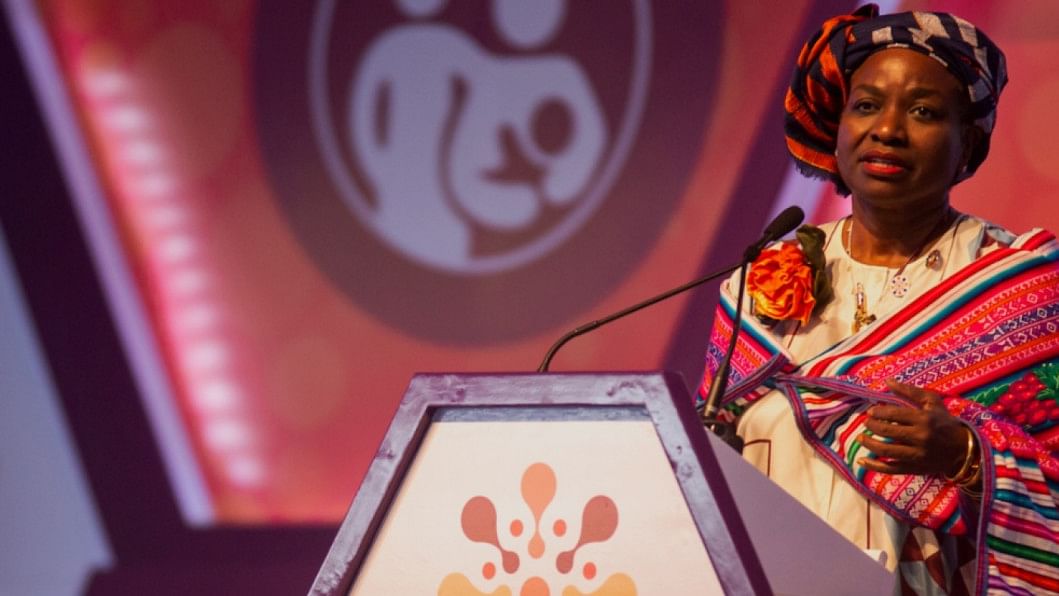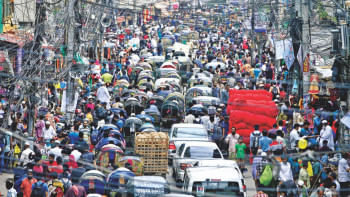Why the global dialogue on demographic diversity is critical

This year marks the 30th anniversary of the landmark International Conference on Population and Development (ICPD), held in Cairo, Egypt in 1994. The ICPD was a critical paradigm shift in the field of population and development, where 179 governments adopted the ICPD Programme of Action (PoA) and defined a bold agenda, placing people's dignity and rights at the heart of sustainable development. It emphasised the qualitative aspects of the population and people's rights for the first time, recognising that the goal of development is to improve the quality of life of all people, and the prerequisites for sustainable development are ensuring equal rights of women and girls, sexual and reproductive health and rights (SRHR), and ensuring human rights and dignity of individuals.
In this regard, to stimulate further discussion, engage new partners, and expand the knowledge generation on emerging population issues, the ICPD30 is organising three global dialogues this year. They are: i) "A New Generation's Vision for ICPD," held on April 4-5; "Demographic Diversity and Sustainable Development," on May 15-16; and "Technological Change and the ICPD Agenda," scheduled for June 24-25. These dialogues are crucial for reviving and expanding the ICPD PoA to impact the ICPD agenda beyond 2024 significantly.
The second event, the ICPD30 Global Dialogue on Demographic Diversity and Sustainable Development, begins today in Dhaka, co-hosted by the United Nations Population Fund (UNFPA) and the governments of Bangladesh, Bulgaria and Japan. I feel honoured to have been invited by the ICPD30 Secretariat to participate in this critical dialogue, which will gather global representatives from academia, think tanks, technical experts, CSOs, the private sector and national governments, and will unpack demographic trends, reflect on current and future challenges compared to the world of 1994, offer practical responses, and highlight the development potential of population policies. This dialogue will feature national examples of rights-based, gender-sensitive, human-centred population and development policies grounded in the ICPD principles.
In this regard, as an academic, I have several questions, such as: what were the significant achievements in implementing the ICPD PoA from 1994 to 2024? Have the population-related challenges been adequately addressed in policies and actions nationally (in terms of advocacy, capacity-building, funding, partnerships, South-South cooperation, etc)? Are there institutional, policy, individual, or household-level barriers to implementing the ICPD PoA? How do we use data to monitor progress regionally, at the country level, sub-nationally, or locally? The composition of the population is becoming increasingly diverse in terms of age, gender, family, education, and ethnicity. Does this increasing diversity pose new policy challenges for tackling social inequality and other disparities? How will the success and challenges of countries and regions be reflected in the dialogue?
Bangladesh has always been considered a critical country in population and development. The 30th anniversary of ICPD allows the country to celebrate and revive the ICPD agenda centred on human rights and sustainable development. The demographic change across countries and regions has increased significantly over the years. For governments to optimise their health, education, housing or infrastructure investments, population change must be understood and integrated into population policy in the post-2030 landscape. The dialogue aims to unpack global and regional population dynamics and diversity, shaping future social and economic conditions. Focusing on individual rights, choices, equality, and quality of life, population and development issues under a changing population dynamics and demographic change should be prioritised, integrated into national development plans and policies, monitored, and evaluated with updated, quality data and good governance.
Undoubtedly, there is much to celebrate, yet significant and multifaceted challenges remain to the ICPD agenda and the SDGs. Since demography will be central to population diversity, new research and policy agendas on the rise regarding population diversity, health, and family are required. In the labour market, male and female differentiation, social inequalities, health burden, social cohesion, mental health, etc are becoming critical concerns. Population stratification for societal policies is needed. Demographic ageing, lower birth rate, increasing life expectancy, and future pension policy—how do they correlate family, demography, and health? Our social systems may not be as adaptive as we think. Thus, increasing diversity in family forms—care, social security, policy, labour market, caregivers, etc—must be considered.
In November 2022, the world population surpassed eight billion. This is a big number, hence brings forth big challenges as well as big opportunities for change. However, there are concerns over how demographics are changing, with high population growth in some countries and ageing and low fertility in others. We are in a race to finish the ICPD and SDG agenda, but the progress is slow. Thus, more investment in population is required, particularly on three zeros by 2030: zero unmet need for family planning, zero maternal deaths, and zero gender-based violence and harmful practices, such as child marriages and female genital mutilation. All three transformative results are essential as a matter of human rights, and as development accelerators.
We have to remember that ICPD is an agenda for everyone. Harnessing the potential of demographic diversity depends on mobilising new actors and involving policymakers, businesses, social movements and others to build social consensus. Let the global dialogue on demographic diversity and sustainable development become successful.
Dr Mohammad Mainul Islam is a professor of population sciences at the University of Dhaka and chief editor of the PPD International e-Journal of South-South Cooperation in Population and Development.
Views expressed in this article are the author's own.
Follow The Daily Star Opinion on Facebook for the latest opinions, commentaries and analyses by experts and professionals. To contribute your article or letter to The Daily Star Opinion, see our guidelines for submission.

 For all latest news, follow The Daily Star's Google News channel.
For all latest news, follow The Daily Star's Google News channel. 










Comments